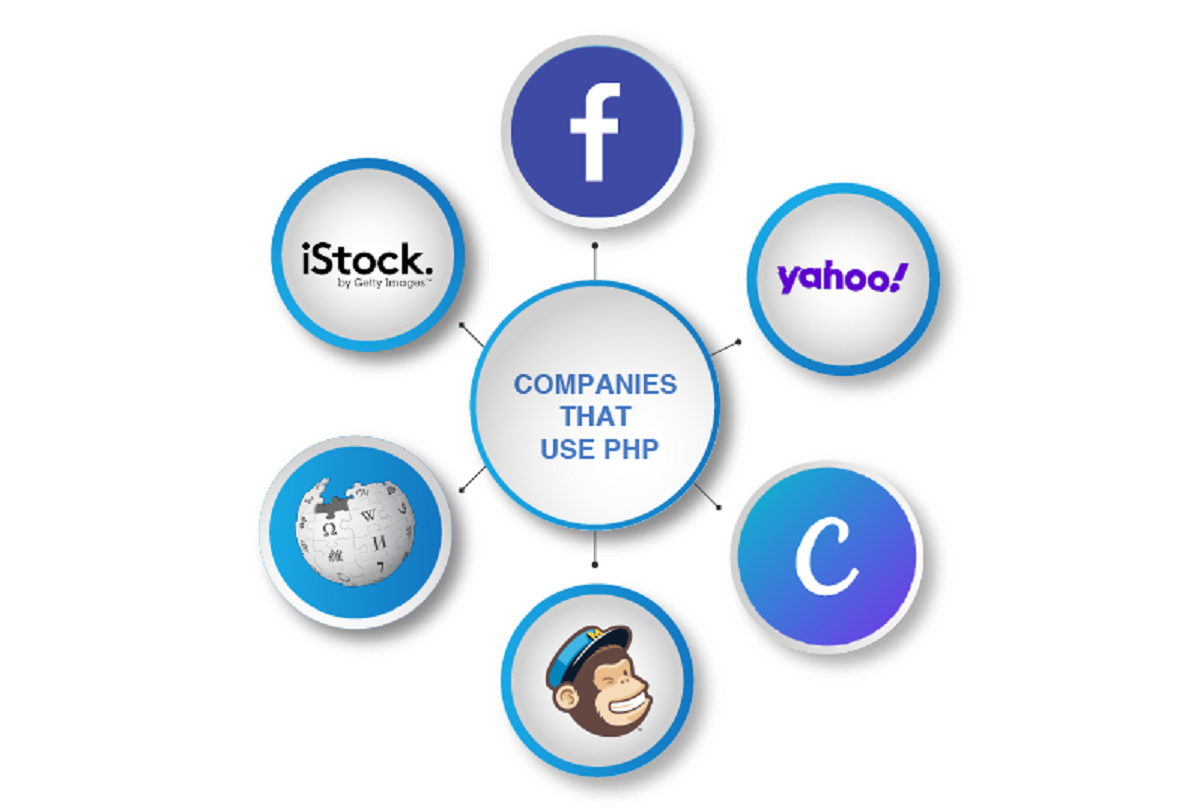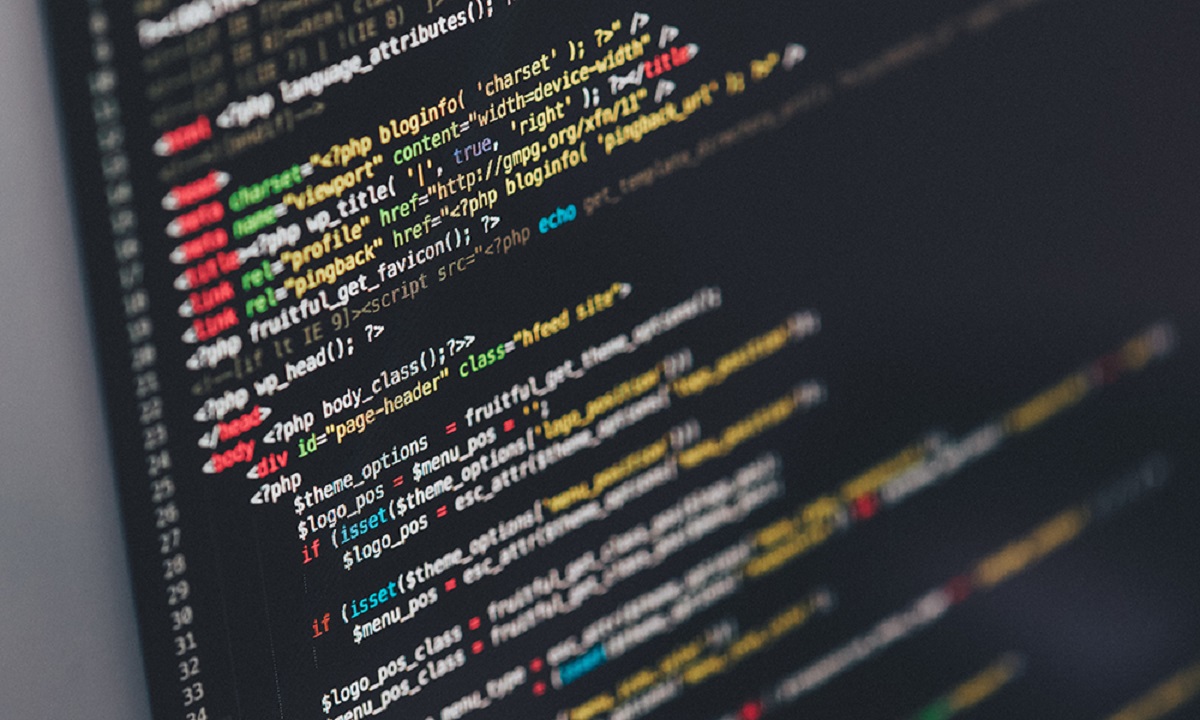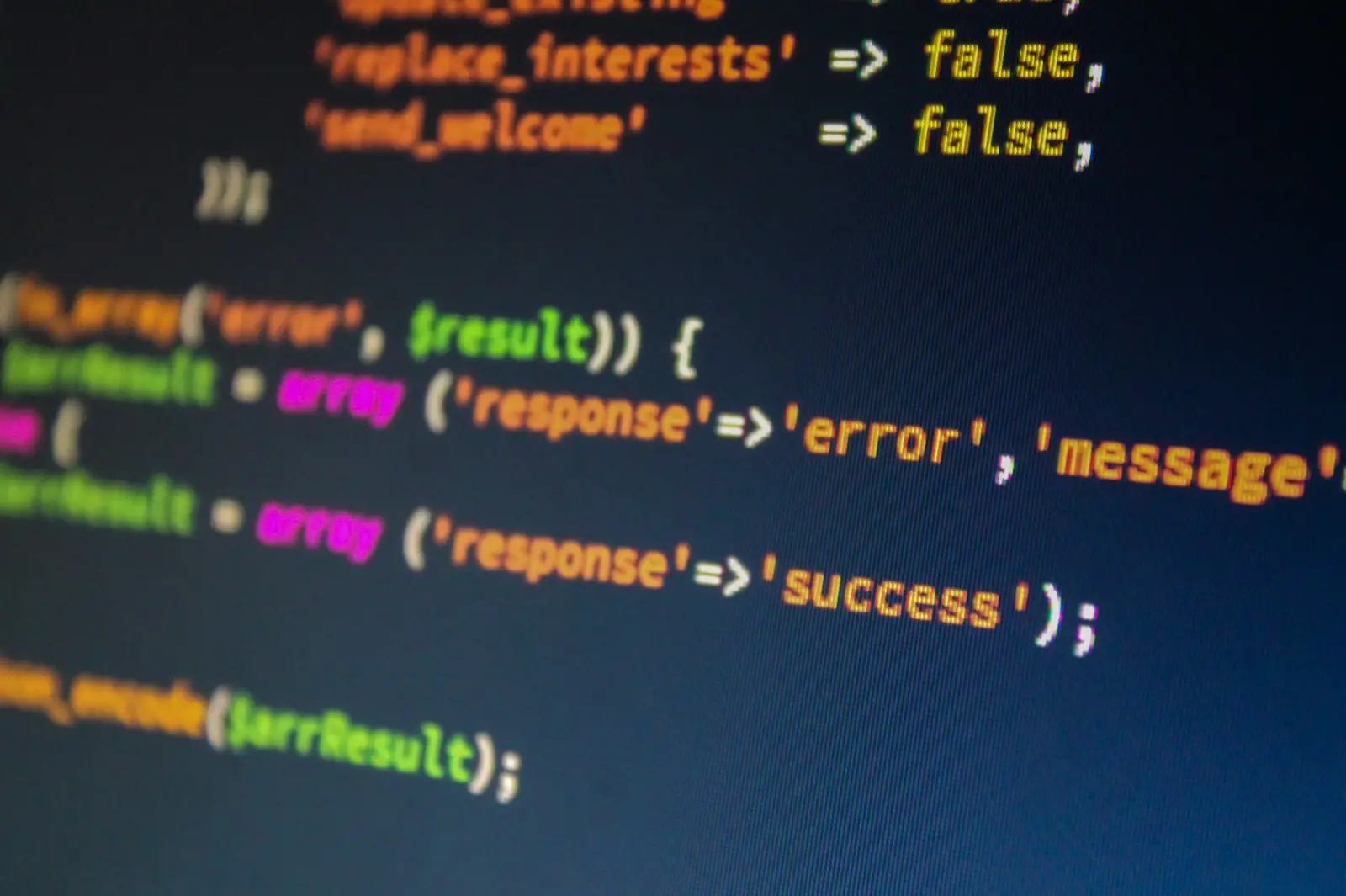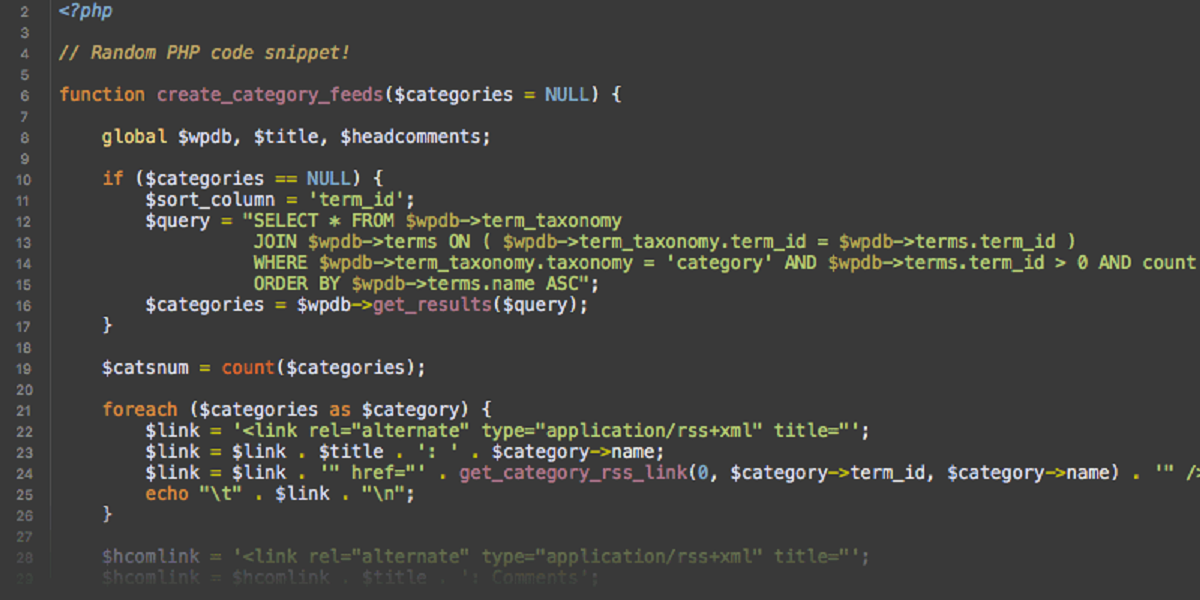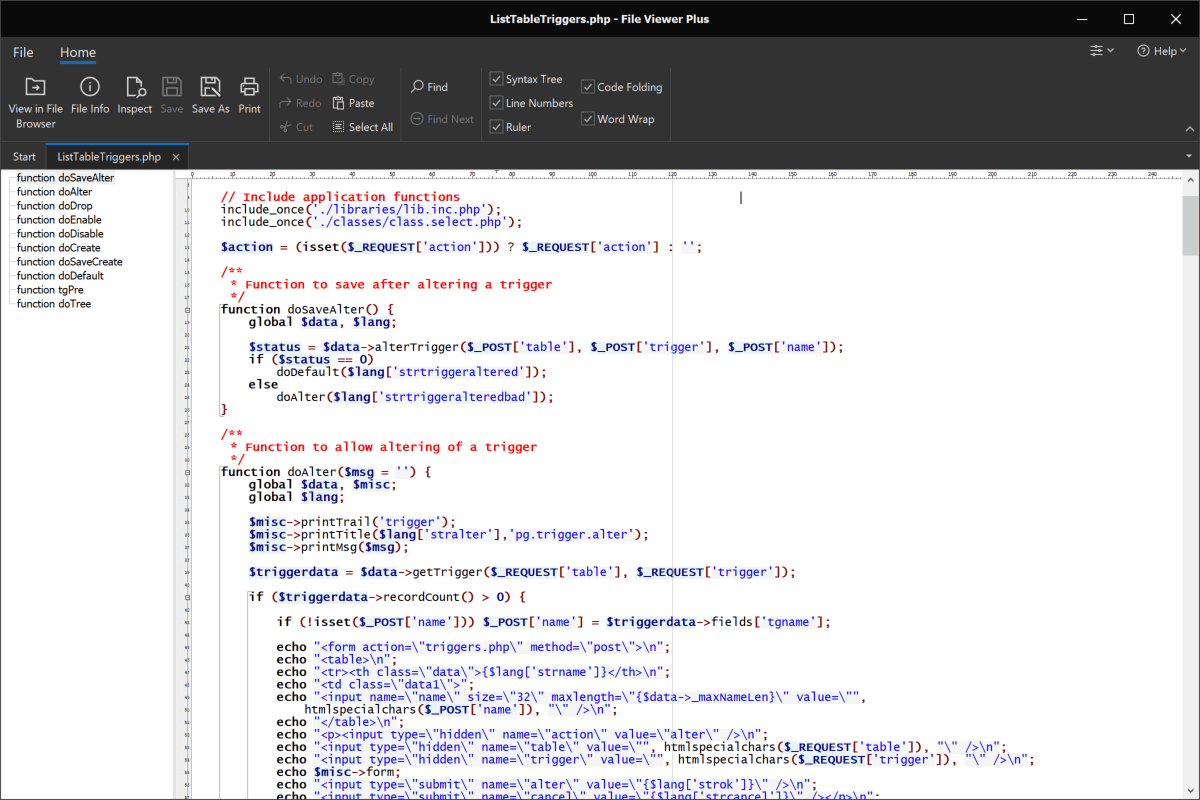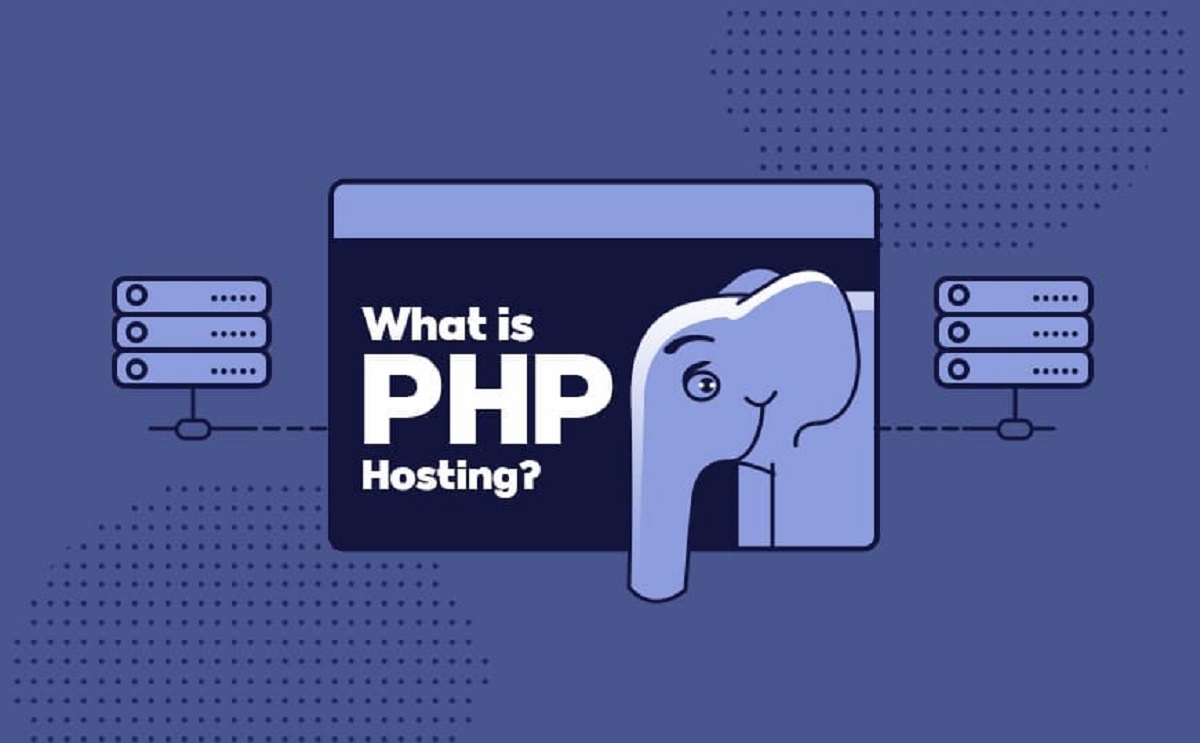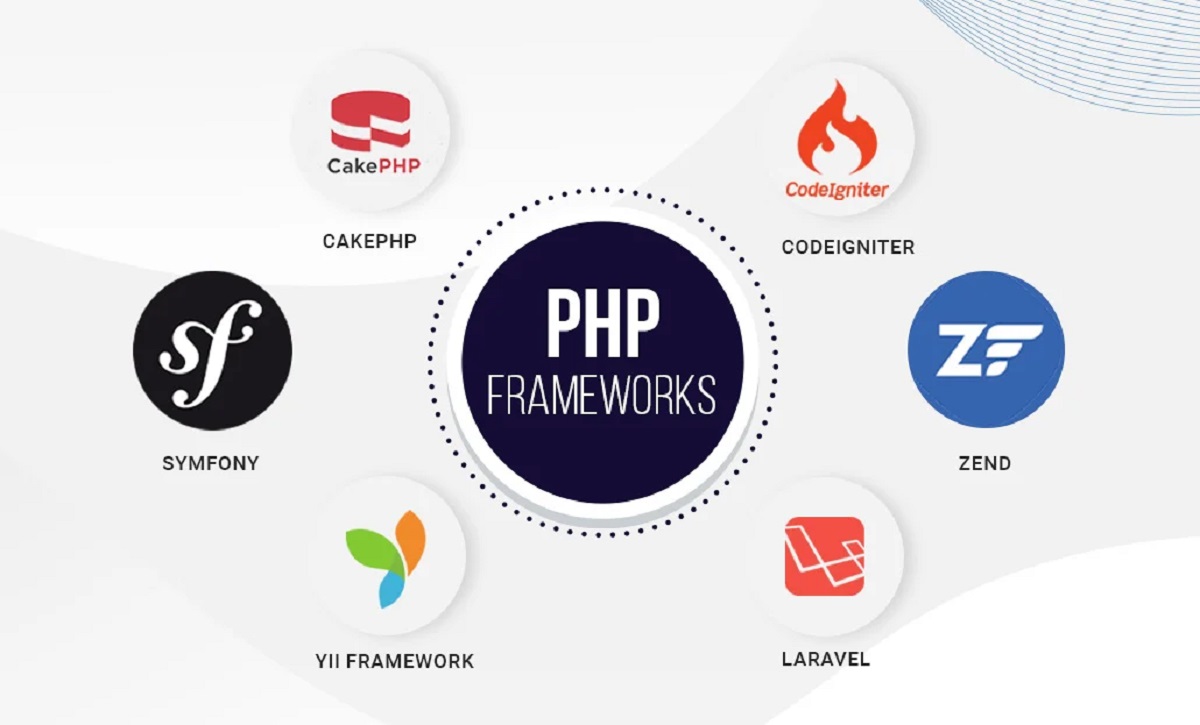Introduction
PHP, which stands for Hypertext Preprocessor, is a server-side scripting language that has gained significant popularity in web development. It allows developers to create dynamic and interactive websites, making it a crucial element in the digital landscape. A PHP developer plays a vital role in designing, developing, and maintaining PHP-based web applications.
The demand for skilled PHP developers has been steadily increasing due to the widespread use of PHP in content management systems, e-commerce platforms, and various web applications. With its versatility and ease of use, PHP has become a go-to choice for developers looking to build robust web solutions.
In this article, we will explore the role of a PHP developer and the responsibilities they undertake. We will also delve into the essential skills and qualifications required to excel in this field. Understanding the key aspects of a PHP developer’s role is necessary for both aspiring developers looking to enter the industry and businesses seeking to hire PHP expertise.
So, let’s dive into the exciting world of PHP development and uncover the core responsibilities and skill set needed to succeed in this field.
What is PHP?
PHP is a widely-used open source scripting language specifically designed for web development. Developed in the mid-1990s, PHP has evolved into a powerful tool for creating dynamic and interactive websites. It is a server-side scripting language, meaning it is executed on the web server before the result is sent to the user’s browser.
One of the main advantages of PHP is its ease of use. It has a simple and intuitive syntax that is easy for beginners to grasp. Furthermore, PHP integrates smoothly with HTML, making it seamless to embed PHP code within the HTML structure of a web page.
PHP offers a wide range of features that make it a popular choice among developers. It has extensive support for accessing databases, allowing developers to easily interact with MySQL, PostgreSQL, Oracle, and other database systems. It also supports various protocols, such as HTTP, FTP, and SMTP, enabling developers to create web applications that communicate with other systems.
Another strength of PHP is its vast and active community. PHP has a large community of developers who contribute to its growth and development. This vibrant community provides extensive documentation, tutorials, and forums to help developers troubleshoot issues and learn from one another.
PHP is also highly scalable, making it suitable for both small-scale projects and large enterprise-level applications. Its versatility allows developers to build anything from simple contact forms to complex e-commerce platforms or social media networks.
Overall, PHP’s popularity is due to its simplicity, integration capabilities, extensive community support, and scalability. It continues to be a preferred choice for web developers worldwide, powering millions of websites and web applications.
Roles and Responsibilities
A PHP developer is tasked with various roles and responsibilities in the development process. Their primary focus is on creating and maintaining efficient, high-quality PHP-based web applications. Let’s explore some of the key responsibilities of a PHP developer:
- Web Application Development: The core responsibility of a PHP developer is to develop web applications using PHP and other related technologies. They work closely with project managers, designers, and other developers to understand the requirements and create solutions that meet client needs.
- Code Review and Optimization: PHP developers regularly review and optimize existing code to improve performance and efficiency. They ensure that the codebase follows best practices, is well-structured, and adheres to coding standards.
- Bug Fixing and Troubleshooting: PHP developers play a crucial role in debugging and resolving issues that arise in web applications. They use debugging tools and techniques to identify and fix bugs, ensuring smooth functionality of the application.
- Database Integration: PHP developers work with databases to store and retrieve data for web applications. They are proficient in SQL and understand how to interact with databases, ensuring proper data management and integrity.
- Collaboration and Communication: PHP developers often collaborate with a team of designers, front-end developers, and project managers. Effective communication skills are vital for understanding project requirements, discussing ideas, and coordinating tasks.
- Adapting and Learning: As technology evolves, PHP developers need to stay up-to-date with the latest trends and advancements in web development. They continuously learn new technologies, frameworks, and best practices to enhance their skills and deliver cutting-edge solutions.
These are just a few of the roles and responsibilities that a PHP developer undertakes. They are versatile professionals who are capable of handling various tasks throughout the development lifecycle, from initial planning to final deployment and maintenance.
Skills and Qualifications
To excel as a PHP developer, it is essential to possess a combination of technical skills, programming knowledge, and personal qualities. Here are some key skills and qualifications that are valuable for a PHP developer:
- Proficiency in PHP: A solid understanding of PHP programming is the foundation of a PHP developer’s skill set. They should be well-versed in PHP syntax, data types, variables, loops, and other fundamental concepts.
- Web Development Languages: In addition to PHP, a PHP developer should have a good grasp of HTML, CSS, and JavaScript. These languages are crucial for creating interactive and visually appealing web pages.
- Database Management: Knowledge of database management systems, such as MySQL or PostgreSQL, is vital for a PHP developer. They should be able to design and manipulate databases, write efficient SQL queries, and handle data integration.
- Framework Knowledge: Familiarity with popular PHP frameworks, such as Laravel, CodeIgniter, or Symfony, is highly advantageous. These frameworks provide pre-built modules and libraries that streamline development and ensure code consistency.
- Debugging and Testing: PHP developers should possess strong debugging and testing skills. They should have the ability to identify and fix issues in code, as well as write and execute test cases to ensure application functionality.
- Problem-Solving: A PHP developer needs to be a problem solver, capable of analyzing complex issues and finding effective solutions. They should have a logical mindset, attention to detail, and the ability to think critically.
- Collaboration: PHP developers often work in a team environment, so strong collaboration and communication skills are crucial. They should be able to effectively communicate ideas, share knowledge, and work together to achieve project goals.
- Continuous Learning: The field of web development is constantly evolving, so a PHP developer should have a thirst for learning. Keeping up with the latest technologies, trends, and best practices is essential for staying competitive.
While a degree in computer science or a related field can be beneficial, practical experience and a strong portfolio of projects can also demonstrate a PHP developer’s expertise. Continuous self-learning and staying updated with the latest industry trends are important for growth and success in this field.
Backend Development
Backend development relates to the server-side of web applications, where PHP developers play a vital role. In this section, we will explore the responsibilities and skills required for effective backend development in PHP.
A PHP developer is responsible for building the logic and functionality that powers a website or web application. They handle the server-side operations, such as processing user requests, interacting with databases, and managing data flow.
Here are some key aspects of backend development that PHP developers focus on:
- API Development: PHP developers create and maintain Application Programming Interfaces (APIs) that allow communication between different software components. They design and implement APIs to facilitate data exchange and enable integration with third-party services.
- Server Management: PHP developers often work with server environments, such as Apache or Nginx, to configure and optimize the server settings for improved performance and security. They ensure the smooth running of the web application on the server.
- Data Storage and Retrieval: PHP developers are responsible for managing data storage and retrieval using databases. They utilize SQL or NoSQL databases to store, retrieve, and manipulate data efficiently, ensuring data integrity and security.
- Server-Side Validation and Security: PHP developers implement server-side validation and security measures to protect the application from potential threats, such as SQL injection or cross-site scripting (XSS). They validate user input, sanitize data, and implement encryption for secure communication.
- Caching and Performance Optimization: PHP developers implement caching mechanisms, such as opcode caching or data caching, to enhance the performance and response time of the web application. They optimize database queries, implement efficient algorithms, and minimize resource usage.
- Integration with Frontend: PHP developers collaborate with frontend developers to integrate the backend functionality seamlessly with the frontend interface. They provide APIs, handle AJAX requests, and ensure smooth data flow between the frontend and backend components.
Backend development in PHP requires a deep understanding of server-side programming concepts, database management, and security practices. PHP developers need to have a strong grasp of APIs, server environments, caching techniques, and performance optimization to deliver robust and scalable web applications.
By leveraging their backend development skills, PHP developers contribute to creating efficient, secure, and reliable web applications that meet the needs of users and businesses alike.
Database Management
Database management is an integral part of web development, and PHP developers play a crucial role in managing and interacting with databases. In this section, we will explore the responsibilities and skills involved in database management for PHP developers.
A PHP developer is responsible for designing, creating, and maintaining databases that store the necessary data for a web application. They work closely with frontend developers and stakeholders to understand the data requirements and implement appropriate database structures.
Here are some key aspects of database management that PHP developers focus on:
- Database Design: PHP developers design the structure and schema of the databases based on the requirements of the web application. They define tables, relationships, indexes, and constraints to ensure efficient data management.
- Data Manipulation: PHP developers use SQL (Structured Query Language) to manipulate and retrieve data from databases. They write queries to insert, update, delete, and select data based on the application’s needs.
- Database Integration: PHP developers integrate databases with the web application using appropriate PHP extensions or libraries. They establish database connections, handle connection pooling, and manage database transactions.
- Query Optimization: PHP developers optimize database queries to improve performance and efficiency. They analyze query execution plans, make use of indexes, and employ query optimization techniques to minimize latency and enhance response time.
- Data Migration and Backup: PHP developers handle data migration from development to production environments and perform backups to prevent data loss. They ensure the integrity and security of data during the migration and backup processes.
- Database Security: PHP developers implement security measures to protect the database from unauthorized access or malicious attacks. They validate user input, sanitize data, and implement mechanisms to prevent SQL injection and other security vulnerabilities.
Effective database management is crucial for maintaining the integrity, reliability, and performance of a web application. PHP developers need to have a strong understanding of database design, SQL, query optimization, and database security mechanisms to successfully handle data management tasks.
By efficiently managing databases, PHP developers ensure that the web applications they work on have reliable and secure data storage capabilities, enabling smooth data retrieval and manipulation for a seamless user experience.
Security and Performance Optimization
Security and performance optimization are critical aspects of web development, and PHP developers have a responsibility to ensure that the applications they build are secure and performant. In this section, we will explore the role of PHP developers in implementing security measures and optimizing performance.
Security is a top priority for any web application, as it prevents unauthorized access, data breaches, and other malicious activities. PHP developers employ various security practices and techniques to protect the applications they develop:
- Input Validation: PHP developers implement strict input validation to prevent potential security vulnerabilities, such as SQL injection or cross-site scripting (XSS) attacks. They validate and sanitize user input to ensure that only valid and safe data is processed.
- Authentication and Authorization: PHP developers implement robust authentication and authorization mechanisms to control access to different parts of the application. They use encryption techniques, such as hashing and salting, to securely store passwords and verify user credentials.
- Secure Session Management: PHP developers ensure secure session management by using secure cookies, storing session data securely, and implementing session timeouts. They prevent session hijacking and ensure the confidentiality and integrity of user sessions.
- Secure Data Transmission: PHP developers use encryption protocols, such as SSL/TLS, to establish secure connections between the web application and the users’ browsers. They encrypt sensitive data during transmission to protect it from interception or tampering.
- Code Review and Vulnerability Scanning: PHP developers conduct rigorous code reviews to identify and fix potential security vulnerabilities. They also make use of vulnerability scanning tools to identify common security loopholes and take necessary actions to mitigate them.
Performance optimization is another crucial aspect of web development. PHP developers strive to improve the speed, scalability, and overall performance of the applications they build:
- Code Optimization: PHP developers optimize the codebase by eliminating redundancies, improving algorithms, and minimizing resource-intensive operations. They aim to write efficient and optimized code to enhance the application’s performance.
- Caching: PHP developers employ caching mechanisms to store frequently accessed data or rendered pages in memory. This allows the application to respond quickly to subsequent requests, reducing the load on the server and improving performance.
- Database Optimization: PHP developers optimize database queries, ensure proper indexing, and employ caching techniques to improve database performance. They minimize unnecessary database round trips and optimize data retrieval and manipulation operations.
- Resource Management: PHP developers pay attention to resource usage, such as memory consumption and CPU utilization, to optimize performance. They identify bottlenecks and adopt strategies to efficiently manage resources for better scalability and performance.
- Performance Monitoring: PHP developers use performance monitoring tools to track the application’s performance metrics, identify performance-related issues, and make necessary optimizations. They proactively monitor and optimize the application’s performance to ensure a smooth user experience.
By implementing robust security measures and optimizing performance, PHP developers contribute to building secure, reliable, and high-performing web applications that meet users’ expectations and protect sensitive data.
Frameworks and Libraries
Frameworks and libraries are essential tools for PHP developers as they provide pre-built modules, components, and standardized coding practices that streamline the development process and enhance productivity. In this section, we will explore the significance of frameworks and libraries in PHP development.
PHP frameworks are designed to simplify the development process by providing a structured foundation and a set of reusable components. They promote code organization, maintainability, and scalability. Some popular PHP frameworks include Laravel, CodeIgniter, Symfony, and Zend Framework.
Here are the key benefits of using frameworks in PHP development:
- Rapid Development: PHP frameworks provide ready-to-use components and features, allowing developers to build applications quickly. They follow the convention-over-configuration principle, reducing the need for writing repetitive code.
- Code Reusability: Frameworks enable code reusability by offering modules, libraries, and extensions that can be easily integrated into different projects. Developers can leverage existing code and focus on creating specific functionalities.
- MVC Architecture: Most PHP frameworks follow the Model-View-Controller (MVC) architecture, which separates business logic from presentation. This promotes code organization, enhances code maintainability, and improves collaboration among developers.
- Security Features: PHP frameworks often come with built-in security features, such as input validation, CSRF protection, and role-based access control. They provide a secure foundation, allowing developers to build applications with fewer security vulnerabilities.
- Community Support: Frameworks have active communities that provide extensive documentation, tutorials, and forums. Developers can seek help, exchange knowledge, and stay updated with the latest trends and best practices in PHP development.
In addition to frameworks, PHP developers also make use of libraries and packages that offer specific functionalities or solve common programming tasks. Some popular PHP libraries include Guzzle for HTTP requests, PHPUnit for unit testing, and Swift Mailer for email handling.
Here are the key advantages of using libraries in PHP development:
- Reusability and Efficiency: Libraries provide pre-built functionalities that can be easily integrated into PHP projects. They save development time and effort by eliminating the need to reinvent the wheel and allowing developers to focus on the core features of the application.
- Maintained and Tested Code: Libraries are usually maintained by a dedicated team, ensuring ongoing updates, bug fixes, and security patches. They undergo rigorous testing and are relied upon by a large user base, making them reliable and trustworthy.
- Specialized Functionality: Libraries offer specialized functionalities that cater to specific requirements, such as image manipulation, payment processing, or geolocation. Developers can easily incorporate these functionalities into their PHP applications, improving overall functionality and user experience.
- Integration Flexibility: Libraries often provide flexible integration options, allowing developers to utilize them with or without a specific framework. This gives developers the freedom to choose the best combination of libraries and frameworks based on the project’s requirements.
By leveraging frameworks and libraries, PHP developers can expedite the development process, improve code quality, and enhance the functionality of their web applications.
Testing and Debugging
Testing and debugging are crucial steps in the web development process, ensuring that the PHP applications built are robust, reliable, and error-free. In this section, we will explore the significance of testing and debugging for PHP developers.
Testing involves evaluating the functionality of a web application to identify and fix any issues or bugs. PHP developers employ various testing techniques and strategies to ensure the quality of their code and the overall application:
- Unit Testing: PHP developers write unit tests to verify the behavior of individual units, such as functions or classes, within the application. Unit testing ensures that each unit functions correctly in isolation.
- Integration Testing: Integration testing involves testing the interaction and communication between different modules or components of the application. This ensures that the integrated parts of the application work seamlessly together.
- Functional Testing: Functional testing validates that the application’s features and functionalities work as intended from the perspective of the end-user. It involves testing various use cases and scenarios to ensure the desired outcomes are achieved.
- Performance Testing: PHP developers conduct performance testing to assess the efficiency and responsiveness of the application under varying load conditions. This helps identify bottlenecks and optimize the performance of the application.
- Security Testing: Security testing involves checking the application for vulnerabilities and potential security risks. PHP developers conduct security audits, vulnerability assessments, and penetration testing to identify and address security weaknesses.
To effectively debug and troubleshoot issues, PHP developers utilize various techniques and tools:
- Logging: PHP developers implement logging mechanisms to record relevant information during application execution. Logs help in identifying the flow of the code, tracking errors, and diagnosing issues.
- Debugging Tools: PHP developers leverage debugging tools, such as Xdebug or PHPStorm, to set breakpoints, step through the code, and inspect variables during execution. This allows them to identify and fix issues efficiently.
- Error Reporting: PHP developers enable error reporting in the development environment to receive detailed error messages and notifications. This helps them identify and resolve issues early in the development process.
- Debugging Techniques: PHP developers use various debugging techniques, such as printing debug statements, logging specific variables, or utilizing debugging functions, to isolate and troubleshoot specific issues within the code.
Testing and debugging are iterative processes that continue throughout the development lifecycle. They help identify and rectify issues early on, ensuring a high-quality, error-free application that meets user expectations.
Collaborative Development
Collaborative development plays a vital role in PHP development, as it enables effective teamwork, efficient communication, and seamless coordination among developers, designers, and project stakeholders. In this section, we will explore the significance of collaborative development for PHP developers.
PHP developers often work in a collaborative environment, where they collaborate with various team members to build and maintain web applications. Here are some key aspects of collaborative development:
- Effective Communication: PHP developers need to effectively communicate with their team members, including project managers, designers, and frontend developers. Clear communication helps ensure that everyone is on the same page and understands project requirements.
- Code Versioning and Source Control: PHP developers utilize version control systems, such as Git or SVN, to manage codebase versions, track changes, and collaborate with other developers seamlessly. This allows multiple developers to work on the same project simultaneously.
- Code Reviews and Peer Programming: PHP developers benefit from code reviews and peer programming sessions. Code reviews help identify potential issues and ensure code quality, while pair programming promotes knowledge sharing and problem-solving.
- Agile Development Practices: PHP developers often follow agile methodologies, such as Scrum or Kanban, to facilitate collaboration and prioritize tasks effectively. Agile practices encourage regular feedback, adaptability, and continuous improvement.
- Documentation and Knowledge Sharing: PHP developers create and maintain documentation, guidelines, and knowledge base resources that facilitate knowledge sharing and promote consistency within the team. This ensures that the team has access to valuable information and best practices.
- Task and Project Management: PHP developers collaborate with project managers and stakeholders to define project requirements, prioritize tasks, and set timelines. They actively participate in project planning, progress monitoring, and status updates.
Collaborative development fosters a sense of shared responsibility and teamwork, resulting in better outcomes and more efficient development processes. By collaborating effectively with other team members, PHP developers can leverage the collective knowledge and skills of the team, leading to improved outcomes and successful project deliveries.
Continuous Learning and Improvement
In the rapidly evolving field of web development, continuous learning and improvement are essential for PHP developers to stay relevant and competitive. In this section, we will explore the significance of continuous learning and improvement for PHP developers.
PHP developers are constantly faced with new technologies, frameworks, and best practices. Here are the key aspects of continuous learning and improvement for PHP developers:
- Staying Updated with Latest Trends: PHP developers need to stay informed about the latest trends and advancements in web development. This includes keeping up with new PHP versions, emerging frameworks, and industry-standard practices.
- Exploring New Technologies: PHP developers should continuously explore new technologies that can enhance their development process and expand their skill set. This includes learning about frontend frameworks, mobile development, cloud computing, or DevOps practices.
- Participating in Developer Communities: PHP developers benefit greatly from actively participating in developer communities, online forums, and local meetups. These platforms provide opportunities for knowledge sharing, collaboration, and networking.
- Engaging in Continuous Education: PHP developers can pursue online courses, tutorials, and workshops to enhance their skills and acquire new ones. Platforms like Udemy, Coursera, and Codecademy offer a wide range of web development courses and resources.
- Building Personal Projects: PHP developers can enhance their skills by working on personal projects that challenge them to explore new concepts and implement best practices. These projects allow for hands-on experience and foster creativity.
- Following Best Practices: PHP developers should adhere to coding standards, best practices, and design patterns to ensure their code is maintainable, reusable, and scalable. They should keep improving their programming techniques and strive for clean and efficient code.
- Embracing Continuous Improvement: PHP developers should actively seek feedback, both from their team members and users, and use it as an opportunity to improve their skills and development process. They should be open to constructive criticism and constantly strive for self-improvement.
Continuous learning and improvement not only expand the skill set of PHP developers but also keep them motivated and passionate about their work. By staying updated with the latest trends and continuously enhancing their skills, PHP developers can deliver high-quality solutions, contribute to the success of their projects, and remain competitive in the industry.
Conclusion
In conclusion, PHP developers play a crucial role in the dynamic world of web development. They are responsible for designing, developing, and maintaining PHP-based web applications that power the digital landscape. With their expertise in PHP programming, database management, security, and performance optimization, PHP developers contribute to creating robust, secure, and high-performing web solutions.
Throughout this article, we have explored the various roles and responsibilities of PHP developers, the essential skills and qualifications they should possess, and the significance of collaborative development, continuous learning, testing, and debugging. We have also discussed the importance of frameworks, libraries, and best practices in PHP development.
PHP developers need to stay updated with the latest trends, continuously improve their skills, and embrace new technologies to excel in their field. By leveraging frameworks, libraries, and collaborative development practices, PHP developers can streamline their workflow, enhance productivity, and deliver exceptional web applications.
As the digital landscape continues to evolve, the demand for skilled PHP developers remains high. Whether you are an aspiring PHP developer looking to enter the industry or a business seeking to hire PHP expertise, understanding the roles, responsibilities, and skill set of a PHP developer is crucial. Armed with this knowledge, you can make informed decisions and contribute to the success of your projects.









